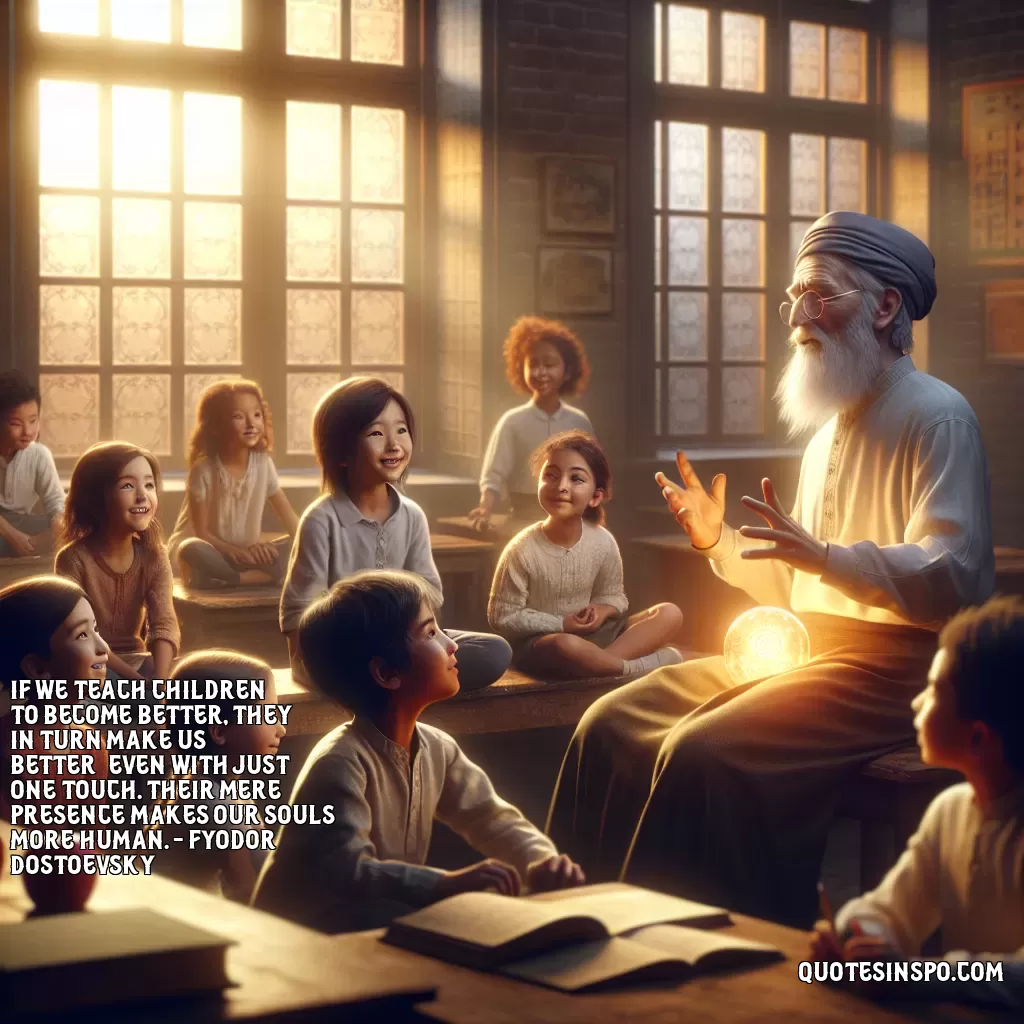
If we teach children to become better, they in turn make us better – even with just one touch. Their mere presence makes our souls more human. - Fyodor Dostoevsky

If we teach children to become better, they in turn make us better – even with just one touch. Their mere presence makes our souls more human. - Fyodor Dostoevsky
Fyodor Dostoevsky's quote, "If we teach children to become better, they in turn make us better – even with just one touch. Their mere presence makes our souls more human," eloquently captures the inherent reciprocal nature of teaching and learning, particularly between adults and children. At its core, this statement emphasizes the transformative power that education has, not only on the learner but also on the educator. When we commit to guiding children toward becoming better individuals—imbuing them with values such as kindness, empathy, and responsibility—we also embark on a journey of self-improvement. As we teach children, whether through formal education, moral guidance, or simple acts of kindness, we are reminded of these virtues ourselves. The "one touch" mentioned in the quote symbolizes the simple yet profound impact children can have on adults. Even a small interaction with a child can inspire us to reflect on our own behaviors, attitudes, and choices. Furthermore, Dostoevsky suggests that children have an innate ability to awaken our humanity. Their presence invites us to view the world through a lens of innocence and curiosity, refreshing our perspectives and encouraging us to act with greater compassion and humility. Children’s unfiltered approach to life often challenges adults to reconsider ingrained habits and biases, facilitating personal growth and expanding our capacity for empathy and understanding. In essence, Dostoevsky's quote highlights the symbiotic relationship between teaching and learning. By investing in the moral and intellectual development of children, we not only contribute to building a brighter future but also reconnect with our humanity, evolving into better versions of ourselves through the simple yet profound impact children have on us.
Quote By: Fyodor Dostoevsky
Fyodor Dostoevsky (1821–1881) was a renowned Russian novelist and philosopher, best known for his profound exploration of human psychology and morality. His major works, including "Crime and Punishment," "The Brothers Karamazov," and "The Idiot," delve deep into themes of guilt, faith, and the human condition, reflecting both his personal struggles and the turbulent socio-political landscape of 19th-century Russia. Dostoevsky's legacy endures as one of the greatest literary figures, influencing countless writers and thinkers worldwide.
Bio added on: 2025-02-18 18:49:19